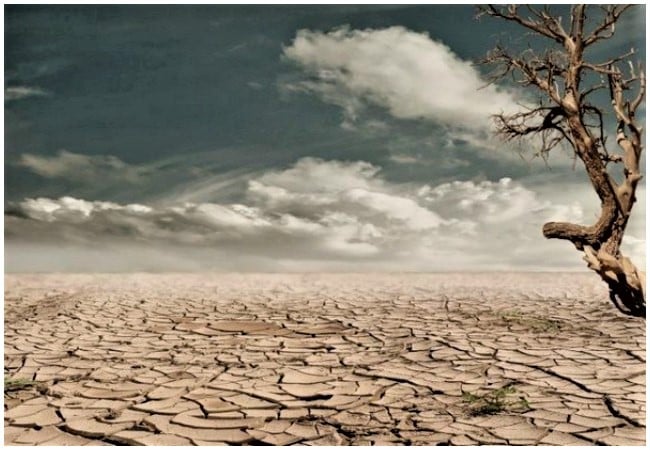Health
Africa requires $2.7trn to finance climate change needs – Adesina

As issues relating to climate change continue to take centre stage, it has been revealed that Africa would need about 2.7 trillion dollars by 2030 to finance its adverse effects and needs.
This was made known by the Group President, African Development Bank, Akinwumi Adesina, at the ongoing 2023 AfDB Annual Meetings being held in Sharm El Sheikh, Egypt.
The theme of the meetings is ‘Mobilising Private Sector Financing for Climate and Green Growth in Africa’.
Akinwunmi noted that climate change is causing tremendous havoc in many parts of the continent.
He said in the Sahel, hotter temperatures are drying up limited water, causing water stress for crops and livestock and worsening food insecurity.
He explained that in vast areas of Eastern Southern Africa and in the Horn of Africa in particular, there was a combination of drought and floods that are causing massive losses.
“We have loss of people, loss or destruction of infrastructure, and of course, leading to rising numbers of what I call climate-induced refugees. Africa loses seven to 15 billion dollars a year from climate change which is estimated to rise to 50 billion dollars by 2040 at the current trend.
“But Africa, which accounts for just three per cent of the total cumulative emissions in the world, is now suffering disproportionately the negative consequences of that. Just to be clear, Africa is being shortchanged by climate finance. Africa will need 2.7 trillion dollars by 2030 to finance climate change needs as per the nationally determined contributions of Africa,” he said.
The AFDB Group President revealed that Africa gets a paltry sum of 30 billion dollars in climate finance, but noted that it clearly needs major support to be able to adapt to climate change, which it was not responsible for.
Adesina noted that climate change adaptation would cost about 250 billion dollars and 407 billion dollars by 2030 in terms of the needs of Africa to be able to adapt to climate change.
He stressed that finance was key to adapting to climate change on the continent, while a lot more was required to support countries on the continent.
He said, “And that is why at the AfDB, in fulfilling our leadership role, launched together with the Global Center on adaptation, what is called the African adaptation acceleration program. The programme is to mobilise 25 billion dollars as support for climate adaptation in Africa.
“We are also putting our money as we are about as a bank today. We devote roughly 67per cent of our climate finance to adaptation. We made a commitment to provide 40 per cent of our total financing for climate finance, we have exceeded that today, we had 45 per cent of our total financing, go into climate,”
Adesina further said that the bank is the institution with the highest level of diversion of resources to the adaptation of any multilateral development bank globally.
He noted that Africa’s finance for climate for the private sector would have to grow by 36 per cent annually and that about 213 billion dollars in private sector financing would be needed yearly.
The group president said, “Therefore you can understand that there is so much gap to be filled in terms of private sector financing, and that is why this AfDB annual meeting is focusing on its theme.
“Let me say to you that the opportunities of financing climate and also financing green growth event is in Africa.”
Adesina restated the need to mobilise private financing for green infrastructure, adding, “It’s not just infrastructure, quality infrastructure, but green infrastructure. And that’s why we have launched the Alliance for Green Infrastructure in Africa.
“We need to prepare the bankable projects for the private sector to invest in and that’s why under the alliance for green infrastructure.
Adesina highlighted some of its projects in different countries and urged governments on the continent to manage its natural capital stock, as it determined a country’s wealth.
Copyright PUNCH
All rights reserved. This material, and other digital content on this website, may not be reproduced, published, broadcast, rewritten, or redistributed in whole or in part without prior express written permission from PUNCH.
Contact: [email protected]
Disclaimer: No copyright infringement intended. All rights and credits reserved to respective owner(s).












